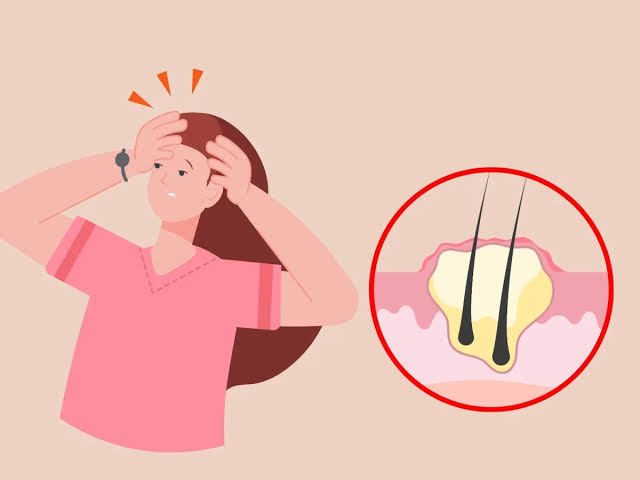Folliculitis is a common but frequently misunderstood skin condition that affects people of all ages. It is marked by small, red, itchy bumps or pustules that result from inflammation and infection of hair follicles. Despite the discomfort and unsightly appearance of these bumps, there are several effective treatments, including homeopathy.

Exploring the Variations: Types and Causes of Folliculitis
Folliculitis can present in different forms, each with unique features:
1. Bacterial Folliculitis: This form can develop anywhere on the skin and is generally caused by Staphylococcus aureus. It often appears as clusters of red, pus-filled bumps centered around hair follicles.
2. Fungal Folliculitis: Caused by fungi like Candida or Malassezia, this type typically occurs in moist regions such as the scalp, presenting as red, swollen, and itchy pustules.
3. Hot Tub Folliculitis: Also known as pseudomonas folliculitis, this type arises after exposure to contaminated hot tub or pool water, leading to itchy red bumps within a couple of days.
4. Barber’s Rash: Predominantly affecting men, this type of folliculitis is associated with ingrown hairs and frequent shaving, particularly in the beard area, leading to inflamed, pustular lesions.
Triggers and Risk Factors of Folliculitis
Folliculitis is most commonly triggered by infectious agents invading hair follicles. Factors that can contribute to this include:
– Friction from clothing or shaving
– Excessive sweating
– Poor personal hygiene
– Use of oily or heavy skincare products
– Contact with contaminated water in pools or hot tubs
Certain individuals are more susceptible to folliculitis, including those who:
1. Shave Frequently: Regular shaving can irritate the skin and contribute to ingrown hairs, a common precursor to folliculitis.
2. Live in Hot, Humid Climates: These conditions can cause sweat to clog hair follicles, increasing the risk of folliculitis.
3. Have Weakened Immune Systems: Individuals with compromised immunity, such as those with HIV/AIDS or undergoing chemotherapy, are at greater risk.
4. Wear Tight Clothing: Clothing that rubs against the skin and traps sweat can create an environment conducive to folliculitis.
5. Have Diabetes: Diabetics are more prone to skin infections, including folliculitis.
6. Use Contaminated Pools or Hot Tubs: Swimming in poorly maintained pools or hot tubs can lead to hot tub folliculitis.
Identifying Folliculitis: Signs and Symptoms
Early detection of folliculitis is crucial for effective treatment. Common symptoms include:
– Red or Inflamed Skin: The affected area may become swollen and exhibit redness.
– Small, Itchy Bumps: These may be painful and filled with pus or clear fluid.
– Clusters of Pustules: Folliculitis often manifests as a collection of pimple-like bumps.
– Itching or Burning Sensation: The affected area may feel itchy or have a burning sensation.
– Hair Loss: In severe cases, folliculitis can lead to hair loss at the site of infection.
If these symptoms are present, consulting a healthcare professional for proper diagnosis and treatment is recommended.
Diagnosing and Treating Folliculitis
A healthcare provider typically diagnoses folliculitis by examining the affected area and may take a sample from the pustules for testing. Treatment approaches depend on the type and severity of the condition and may include:
1. Warm Compresses: Applying warm compresses can help alleviate symptoms and encourage drainage of pustules.
2. Topical Antibiotics: These are often prescribed to treat bacterial folliculitis.
3. Antifungal Treatments: Fungal folliculitis may require antifungal creams or shampoos.
4. Oral Medications: In more severe cases, oral antibiotics or antifungal medications might be necessary.
5. Avoiding Irritants: Identifying and steering clear of potential irritants, like tight clothing or certain skincare products, is important.
6. Lifestyle Adjustments: Altering shaving habits and maintaining good hygiene can prevent recurrences.
Preventing Folliculitis: Proactive Measures
Preventing folliculitis can be more straightforward than treating it. Key preventive measures include:
1. Maintain Good Hygiene: Wash regularly with a mild cleanser to keep your skin clean and reduce the risk of infection.
2. Choose Appropriate Clothing: Opt for loose, breathable clothing to minimize friction and sweat buildup.
3. Shave Carefully: Use a clean, sharp razor and shave in the direction of hair growth to minimize irritation.
4. Keep Skin Hydrated: Moisturize regularly to prevent dryness and irritation.
5. Avoid Sharing Personal Items: Personal items like towels or razors can spread bacteria, so avoid sharing them.
6. Ensure Pools and Hot Tubs are Clean: Use only well-maintained pools and hot tubs to reduce the risk of infection.
7. Consult a Professional: If you suspect folliculitis or experience persistent symptoms, seek medical advice.
Homeopathy for Folliculitis: Natural Remedies
Several homeopathic treatments can help manage folliculitis:
1. Sulphur: Effective for treating folliculitis characterized by burning, itchy eruptions, particularly in warm and humid climates.
2. Hepar Sulphate: Useful for cases with pus-filled eruptions and pain that worsens with cold exposure.
3. Calcarea Sulphurica: Recommended for folliculitis with yellowish crusts and pus-filled eruptions.
4. Mezereum: Prescribed for folliculitis with severe itching, burning, and thick scabs under the pus.
5. Graphites: Helps with folliculitis that presents with sticky, thin discharge and stinging pain, particularly at night.
Consulting a qualified homeopath is essential before starting any homeopathic treatment to ensure it is suitable for your condition.

Conclusion: The Modern Treatment
Folliculitis is a common skin issue that can arise from various causes. Recognizing its symptoms early, seeking prompt medical advice, and adhering to preventive measures are key to managing the condition effectively. While homeopathic remedies can complement conventional treatments, working with healthcare professionals is essential to develop a comprehensive plan for managing folliculitis. With the right approach, you can achieve healthier, more comfortable skin.
Reach out to us for a Consultation
For any queries, reach out to us at contact@homeopathic.ai
This blog is for information purposes. It’s crucial to note that while homeopathy is a centuries-old practice with many adherents worldwide, always consult a qualified homeopath or medical professional before initiating any treatment.





